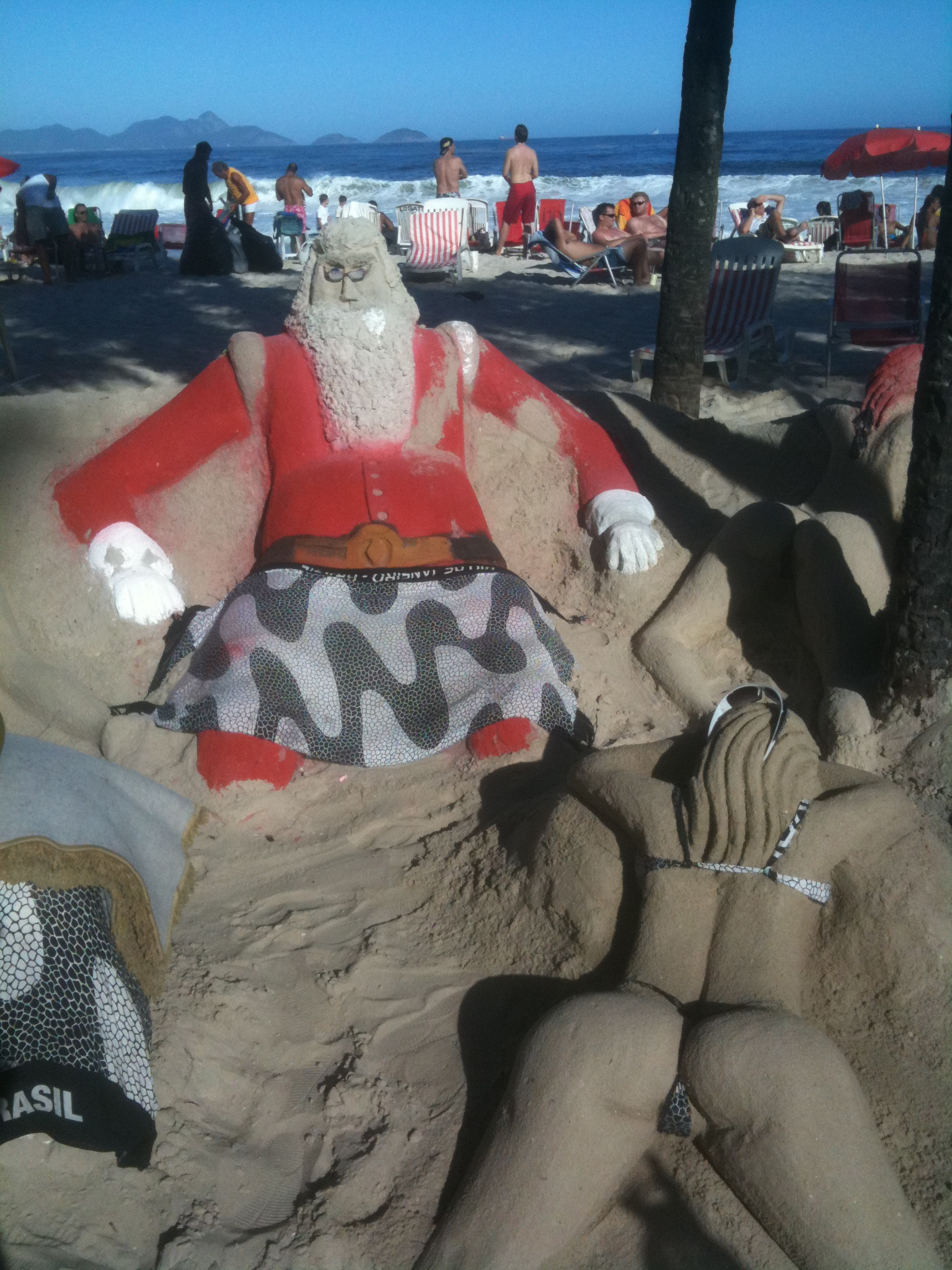A Few Final Reflections at Year's End...
/Having made it, more or less, through the grading frenzy, I am now really and truly spent, and looking forward to some much needed rest and relaxation over the holidays. So, this is going to be the last blog post for 2011. We will be back by the Second Week of January with an exciting line-up of interviews, essays, and other resources, but for the time being, I am going to take a few weeks off to read, write, and other things that keep Henry healthy and wise, if not particularly wealthy. Before I do, I wanted to share a few loose ends which have come across my desk in the past few weeks.
The first is the webcast created by the fine folks at the New School of Social Research depicting the public conversation I had with Liz Losh at the Mobility Shifts conference earlier this fall. Many of you will have seen photographs of Liz and I wearing the Team Critical Theory and Team Cultural Studies racing jackets which Liz's husband designed and produced for the event. They were our joking way of calling out some of the unproductive tensions which have existed between those two camps over the past few years and the desire to work beyond them in order to contribute to far more important public debates, such as those concerning the future of public education, and to contribute towards shared visions, such as those concerning the democratization of access to digital media.
Here's how the program was billed:
At Mobility Shifts: An International Future of Learning Summit Henry Jenkins (Team Cultural Studies) and Elizabeth Losh (Team Critical Theory) offer a progress report on whether and in what ways the public schools and universities are going to be able to absorb or meaningfully deploy what Jenkins calls "participatory culture." Rather than an abstract discussion of a theoretical construct drawn from their supposedly opposite positions studying fan culture and institutional rhetoric respectively, the two will discuss concrete experiences of young people acting appropriately or not, inside or outside the classroom. What might a participatory learning culture look like? What policies make it hard for even supportive teachers to achieve in their classrooms? What stakeholders would need to be engaged in order to change the current cultures of our school? How might participatory learning take place beyond the schoolhouse gates? What is everyone afraid of?
The Mobility Shifts conference did a great job of combining multiple groups of people, from around the world, who care passionately about the future of education, many of whom are doing local projects designed to have a material real world impact that exist alongside and in relationship with their theory and scholarship.
As you will see, the differences that might exist between Losh and I on paper start to break down when we deal pragmatically with the concerns that animate our work. We've sometimes disagreed through our blogs, but the more we worked on pulling together this event, the clearer it became that our shared values and commitments were far more significant than tactical disagreements. In the course of this conversation, we make strong arguments for why, tempting though it may be, we can not just blow up the public schools and walk away, we talk about some specific insights we've gained through our educational interventions, and we discuss the strengths and limits of the concept of participatory culture as a way of framing current struggles over access to the means of cultural production and circulation. If you want to learn more about Liz's work, see her blog here.
Nikki Usher, a recently minted PhD from the Annenberg School of Communications and Journalism, has been using excerpts from Spreadable Media: Creating Value and Meaning in a Networked Society (which I co-authored with Sam Ford and Joshua Green and which will be released by NYU Press next fall) with her students at George Washington University. Nikki shared with us a video produced as part of a class project by her student, Sandi Moynihan, which applies our concepts of "spreadability" to describe the Occupy movement. The video is part of a larger set of resources around the movement you can find at her website, many of them dealing with Occupy's use of social media. I was so excited by her wonderful video that I asked if I could share it with you here.
Last week, I was down in Rio. In Copacabana, there are the most remarkable sand sculptures, including several which reconstruct the city's landmarks. Somehow, this sculpture depicting Santa and friends caused me great amusement. It speaks to the incongruous way that Euro-American Christmas iconography and traditions work in the context of South America, where, after all, December is one of the hottest summer months, but we are hearing "Frosty the Snow Man" and "White Christmas" playing everywhere we go. I decided this particular version of Father Christmas might better be called "Sandy Claws." (By the way, while it does not show up very well in this particular image, the woman in the picture is actually wearing one of those "itsy bitsy polka dot bikinis" that one sees on the beaches here, though admittedly, the sculpture left very little to the imagination in this rendering, itself a marker of cultural difference, given how unlikely it is to see anything so "family unfriendly" in public spaces in the United States.)


